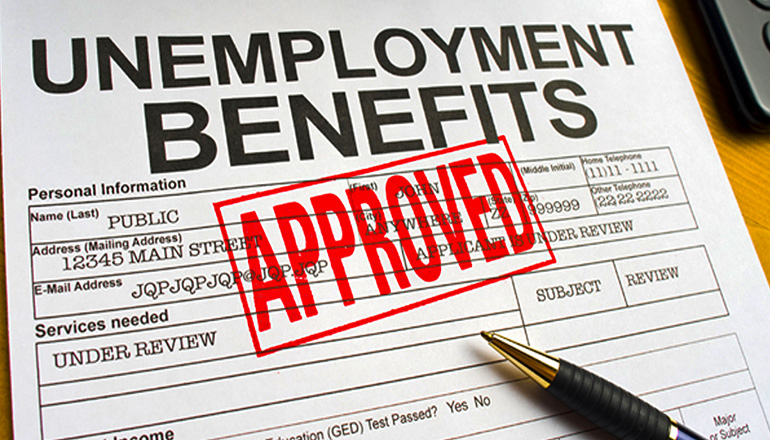HIGHLIGHT POINTS OF THE LAW ON ENTERPRISES 2020

THE SUPREME PEOPLE’S PROCURACY OF VIETNAM PROVIDES GUIDANCE ON THE USURY IN CIVIL TRANSACTIONS
06/11/2020
INCREASING THE FINE LEVEL OF ADMINISTRATIVE VIOLATIONS ON NOTARIZATION OF CONTRACT FROM SEPTEMBER 01, 2020
09/11/2020HIGHLIGHT POINTS OF THE LAW ON ENTERPRISES 2020

The current Law on Enterprises: Law No. 68/2014/QH13 dated November 26, 2014;
The Law on Enterprises 2020: Law No. 59/2020/QH14 dated June 17, 2020. This Law comes into force from January 01, 2021
I. ADDING A GROUP OF SUBJECTS THAT ARE PROHIBITED FROM ESTABLISHING AND MANAGING ENTERPRISES
According to Clause 2 Article 18 of the current Law on Enterprises, there are six (06) groups of subjects that do not have the right to establish and manage enterprises. However, Article 17 of the Law on Enterprises 2020 adds three (03) more groups of such prohibited subjects, including:
(i) Police workers in police authorities and units, except for those designated and authorized representatives to manage state-owned stakes in enterprises or to manage state-owned enterprises;
(ii) People having difficulties controlling their behaviors;
(iii) Juridical persons that are banned from business operation or banned from certain fields as prescribed by the Criminal Code.
II. THE ENTERPRISES DO NOT HAVE TO NOTIFY THE SEAL DESIGN TO THE BUSINESS REGISTRATION AUTHORITY
According to Clause 2 Article 44 of the current Law on Enterprises, it provides that: “Before using the seal, the enterprise must send the seal design to the business registration authority in order for the business registration authority to post it on the National Business Registration Portal”. However, the Law on Enterprises 2020 removes the provision that the enterprises must notify the seal design before use.
In addition, Article 43 of the Law on Enterprises 2020 also allows the enterprises to decide on their own whether the enterprises’ seals can be physical or digital (token) as prescribed by e-transaction law. This new regulation is consistent with the current development trend, reduces administrative procedures and creates a dynamic business environment for the enterprises.
III. REDEFINING “STATE-OWNED ENTERPRISE”
According to Clause 8 Article 4 of the current Law on Enterprises, it provides that: “State-owned company means any enterprise of which 100% charter capital is held by the State”. However, Clause 11 Article 4 of the Law on Enterprises 2020 amends this definition as follows: “A state-owned enterprise means an enterprise more than 50% charter capital or voting shares of which is held by the State as prescribed in Article 88 of the Law on Enterprises 2020”.
Again, the Law on Enterprises 2020 returns to the definition of State-owned enterprises provided in the Law on Enterprises 2005. Perhaps, the State now finds that the definition of State-owned enterprise under the current Law on Enterprises does not actually work with other laws governing State-owned enterprises.
IV. DECREASING THE NOTICE TIME BEFORE THE SUSPENSION OR RESUMPTION DATE
Clause 1, Article 206 of the Law on Enterprises 2020 shortens the notice time before suspending or resuming business from at least 15 working days (under Clause 1, Article 200 of the current Law on Enterprises) to at least 03 working days.
V. CHANGING IN THE ORGANIZATIONAL STRUCTURE OF A SINGLE-MEMBER LIMITED LIABILITY COMPANY OWNED BY AN ORGANIZATION
According to Article 79 of the Law on Enterprises 2020, the Controller is no longer required in the organizational structure of a single-member limited liability company owned by an organization.
However, for a company owned by a State-owned enterprise prescribed in Clause 1 Article 88 of the Law on Enterprises 2020, a Board of Controllers shall be established; the establishment of a Board of Controllers in other cases shall be decided by the company.
VI. SETTLEMENT OF STAKES IN SOME SPECIAL CASES
In addition to the cases specified in Article 54 of the current Law on Enterprises, Article 53 of the Law on Enterprises 2020 adds two (02) additional cases of the settlement of stakes, specifically:
– According to Clause 8 Article 53 of the Law on Enterprises 2020, it stipulates that: “In case a member that is an individual is being kept in temporary detention, serving an imprisonment sentence, serving an administrative penalty in a correctional institution or rehabilitation center, he/she shall authorize another person to perform some or all of his/her rights and obligations to the company”;
– According to Clause 9 Article 53 of the Law on Enterprises 2020, it stipulates that: “A member that is an individual and is banned by the court to do certain jobs must not do those jobs at the company, a member that is a juridical person and is banned by the court from certain business lines of the company must not do such business lines at the company; or the company must suspend or stop business operation in those business lines”.
In addition, Article 53 of the Law on Enterprises 2020 also amends the following provisions:
– If a member being an individual is declared missing by court, his/her asset manager according to civil law shall no longer have to be the company’s member as prescribed in Clause 1 Article 54 of the current Law on Enterprises;
– In case a member being an individual is incapacitated, has limited legal capacity or has difficulty in perception, controlling his/her behaviors, his/her rights and obligations at the company shall be performed through his/her representative (his/her guardian under the current Law on Enterprises).
VII. INCREASING THE RIGHTS OF SHAREHOLDERS/GROUP OF MINIMUM SHAREHOLDERS
According to the current Law on Enterprises, a shareholder/group of shareholders must “holds at least 10% of ordinary shares for at least 06 consecutive months or a smaller amount prescribed by the Company’s Charter” to have some special rights such as: reviewing and inspecting the Company’s documents, requesting convention of the General Meeting of Shareholders, etc. (Clause 2 Article 114 of the current Law on Enterprises). However, the Law on Enterprises 2020 reduces this ratio to “holds at least 5% of the ordinary shares or a smaller ratio specified in the Company’s Charter”, accordingly, the condition of holding “at least 06 consecutive months” is also abolished (Clause 2 and 3 of Article 115 of the Law on Enterprises 2020).
Especially, the shareholder/group of shareholders still have to “holds at least 10% of the ordinary shares or a smaller ratio specified in the Company’s Charter” to have the right to nominate candidates for the Board of Directors and the Board of Controllers but it does not require “a period of at least 06 consecutive months” as provided by the current Law on Enterprises.
VIII. OFFERING THE PRIVATE PLACEMENT OF SHARES OF A NON-PUBLIC JOINT STOCK COMPANY
Adding the conditions for the private placement of shares, specifically:
– The offering is not made through mass media;
– Shares are offered to fewer than 100 investors, not including professional securities investors or only offered to professional securities investors.
Adding the provision of the preemptive rights of the shareholders, accordingly, only when the shares are not completely bought by the shareholders and the persons that receive the rights to buy shares, the remaining number of shares shall be offered by private placement under conditions that are not more favorable than those offered to the shareholders (the shareholders may transfer their right to buy shares to other persons). This provision is not applied for consolidation and acquisition of enterprises.
Abolishing the regulation that the enterprises shall notify the private placement of shares to the business registration authority.
(Article 125 of the Law on Enterprises 2020)
IX. CONDITIONS FOR CONDUCTING THE GENERAL MEETING OF SHAREHOLDERS AND RATIFICATION OF RESOLUTIONS OF THE GENERAL MEETING OF SHAREHOLDERS
The ratio of shareholders attending a meeting to be eligible to hold the meeting and the ratio of shareholders attending the meeting/the ratio of shareholders to pass resolutions of the General Meeting of Shareholders with some common contents and collecting opinions in writing with the ratio of “51% or more” (according to Clause 2 Article 141 and Clause 4 Article 144 of the current Law on Enterprises) is reduced to “over 50%” (according to Clause 2 Article 145 and Clause 4 Article 148 of the Law on Enterprises 2020).
The Law on Enterprises 2020 adds the provision in Clause 6 Article 148 that “A resolution on adverse changes to rights and obligations of preference shareholders may only be ratified if it is voted for by a number of preference shareholders that participate in the meeting and hold at least 75% of the same kind of preference shares. In case of questionnaire survey, it needs to be approved by a number of preference shareholders that holding at least 75% of the same kind of preference shares”.
X. AUTHORIZATION TO ATTEND THE GENERAL MEETING OF SHAREHOLDERS
The Law on Enterprises 2020 removes the regulation that the authorization to attend the General Meeting of Shareholders must be made in writing under the form provided by the company, the authorizztion only needs making in writing according to the provisions of civil law, instead.
This clause simplifies the procedures for the enterprises to send meeting invitations without having to include the authorization form, as well as creates flexibility for the shareholders.
XI. APPROVING CONTRACTS AND TRANSACTION BETWEEN THE COMPANY AND RELATED PERSONS
According to Clause 3 Article 167 of the Law on Enterprises 2020, it supplements the provision that “Contracts and transactions that involve borrowing, lending, selling assets that are worth more than 10% of the company’s total assets according to the latest financial statement between the company and shareholders that hold at least 51% of the total voting shares or their related persons” shall be approved by the General Meeting of Shareholders although these contracts/transactions are worth less than 35% of the total asset value in the latest financial statements of the company.
XII. RIGHTS TO FILE LAWSUITS AGAINST DECISION, RESOLUTION OF THE BOARD OF DIRECTORS
According to Clause 4 Article 153 of the Law on Enterprises 2020, it stipulates that any shareholder has the right to file a lawsuit to request the Court to suspend or invalidate the resolution or decision of the Board of Directors instead of only the shareholder owning shares continuously for 01 year as specified by Clause 4 Article 149 of the current Law on Enterprises.
Best regards,



